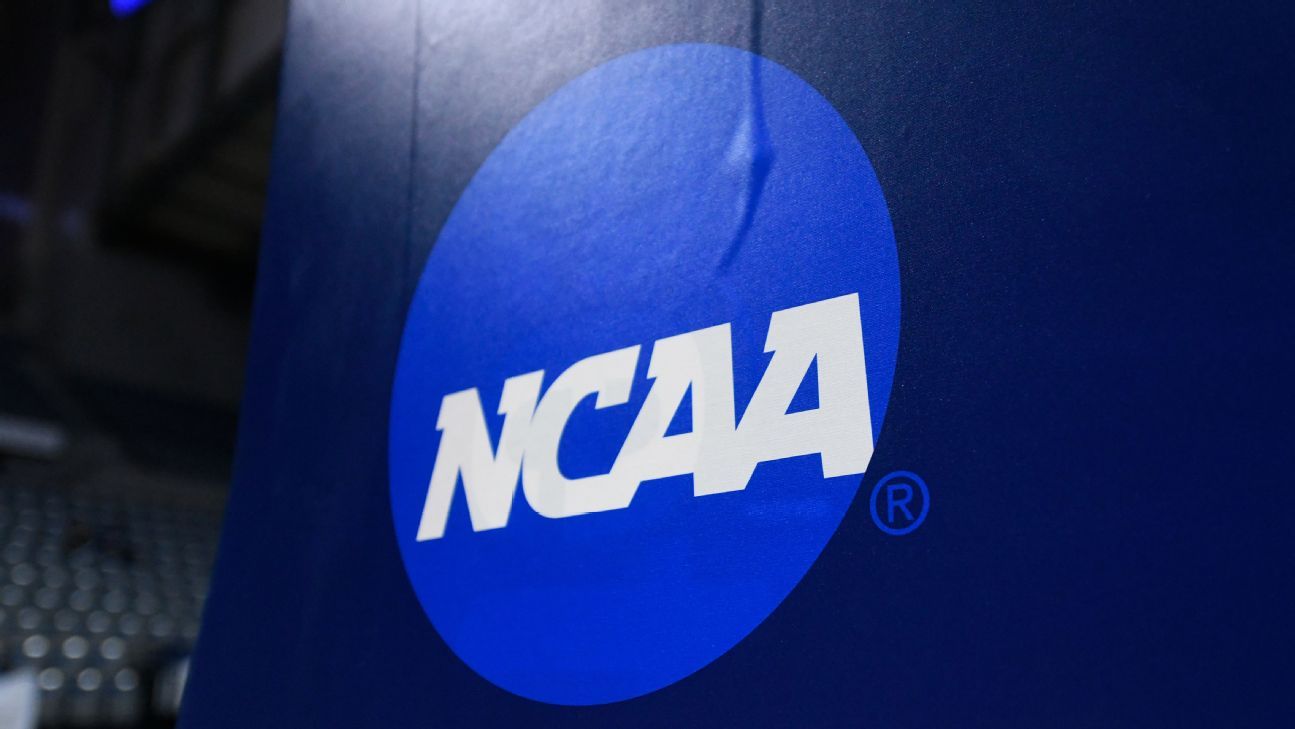
NCAA issues 'reasonable' NIL booster guidelines
The NCAA's Division I Board of Directors on Monday published new name, image and likeness guidelines to clarify that boosters should not have any contact with prospective college athletes, their family members or their representatives.
Dan Murphy
ESPN Staff Writer
The NCAA's Division I Board of Directors published new guidelines Monday to clarify that boosters -- including recently created companies designed to provide athletes at a particular school with endorsement deals -- should not have any contact with prospective college athletes, their family members or their representatives.
The guidelines were crafted by a working group of athletic directors and conference commissioners who were tasked earlier this year with reviewing the evolving marketplace for college athletes. The NCAA updated its rules last summer to allow college athletes to make money by selling the rights to their name, image and likeness. The group's first public response comes amid growing concern that some boosters and NIL-focused companies, known as collectives, are offering money as incentives to attend a particular school.
Member schools received new guidelines Monday saying that boosters or collectives who contact recruits or sign athletes to contracts that are contingent upon a player's attendance at a particular school are breaking NCAA rules. The Division I Board of Directors said the NCAA could pursue sanctions against anyone who has egregiously violated these rules in the past 10 months since NIL rules were changed, but it is likely to focus more on issues that come up in the future.
"While the NCAA may pursue the most outrageous violations that were clearly contrary to the interim policy adopted last summer, our focus is on the future," board chair and University of Georgia president Jere Morehead said. "The new guidance establishes a common set of expectations for the Division I institutions moving forward, and the board expects all Division I institutions to follow our recruiting rules and operate within these reasonable expectations."
The guidelines don't establish any new rules, but are an attempt to clarify the definition of a booster. Coaches and administrators have publicly called for more help in recent weeks from the NCAA in enforcing and interpreting rules that shape the elastic and increasingly murky line between college athletes making money from endorsement deals and professionals getting paid to play sports.
NCAA rules prohibit athletes from taking money as a recruiting inducement or as a reward for their athletic performance. However, the broadly written rules have made it difficult for the NCAA to separate deals made by private businesses for an athlete's services off the field from deals made with the intent of securing an athlete's services on the field.
An entire industry has emerged in that gray area. Dozens of businesses known as collectives have opened their doors since last July. Most of the collectives have slightly different approaches to how they do business, but generally they seek to collect money from boosters or fans and then find ways to channel it to athletes at their chosen school through NIL deals.
Laws in nearly two dozen states prohibit schools and the NCAA from punishing athletes for accepting money from third parties. These guidelines, if enforced by the NCAA, could lead to legal challenges. Athletes in states without laws that specifically address college sports compensation also could file lawsuits that claim any limits the NCAA places on their ability to make endorsement money violate federal antitrust laws.
The risk of litigation is at least part of the reason the NCAA has taken a hands-off approach to regulating the new NIL market since it opened last July, according to Tulane sports law professor Gabe Feldman. But other risks to the business model of college sports may now outweigh the fears of future lawsuits.
The current marketplace for athletes may make it harder for the NCAA to fend off a pair of complaints under review by the National Labor Relations Board that say college football and basketball players should be considered employees. Also, the NCAA has argued against antitrust complaints in the past by claiming that without amateurism fans would lose interest in college sports and their business would suffer. Feldman said that if the NCAA fails to police the way its athletes make money, it will have a hard time making those claims in the future.
"By avoiding any current legal risk and allowing these payments to continue, I think they are really setting themselves up to lose the very thing they fought for," Feldman told ESPN. "If they don't fight right now, I'm not sure there's going to be anything left to fight for."